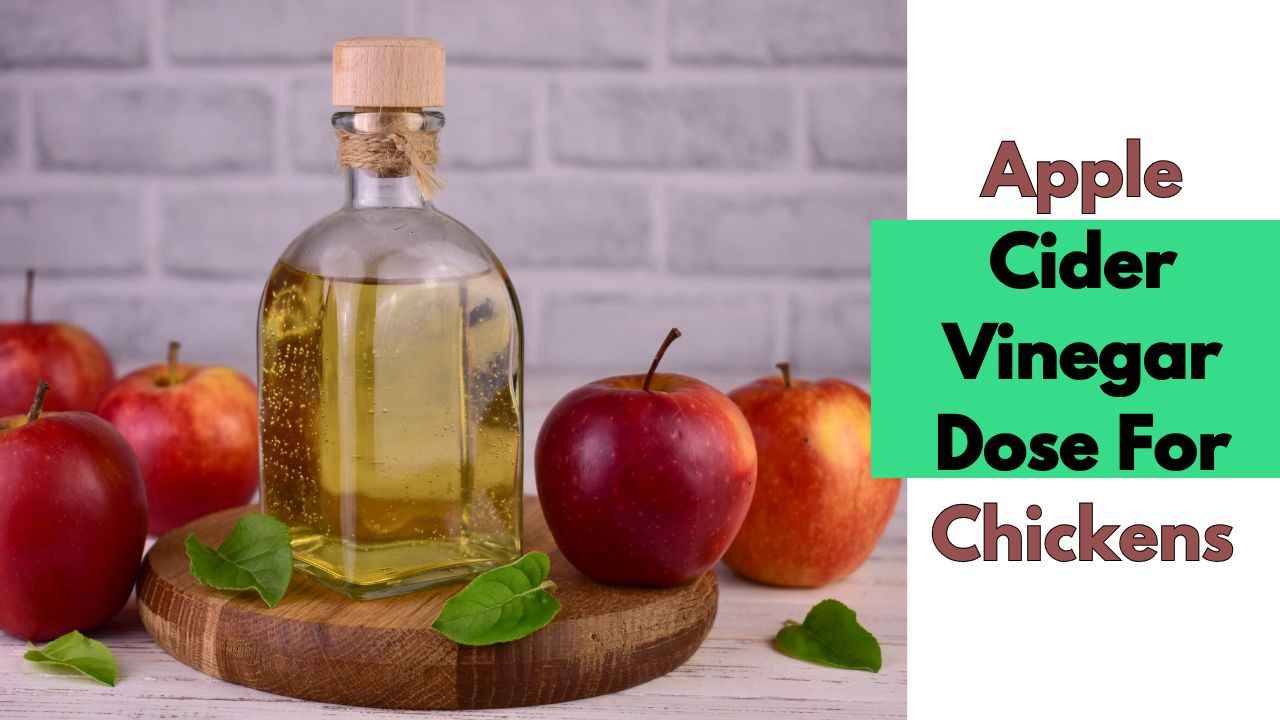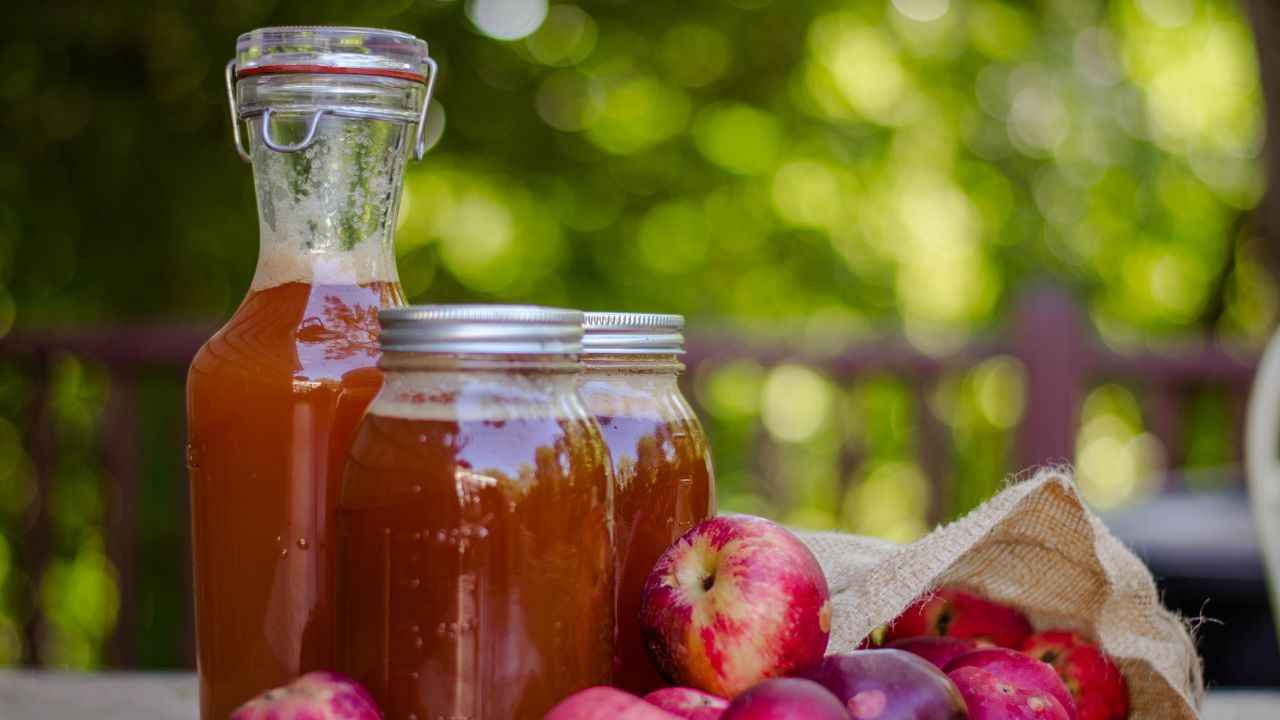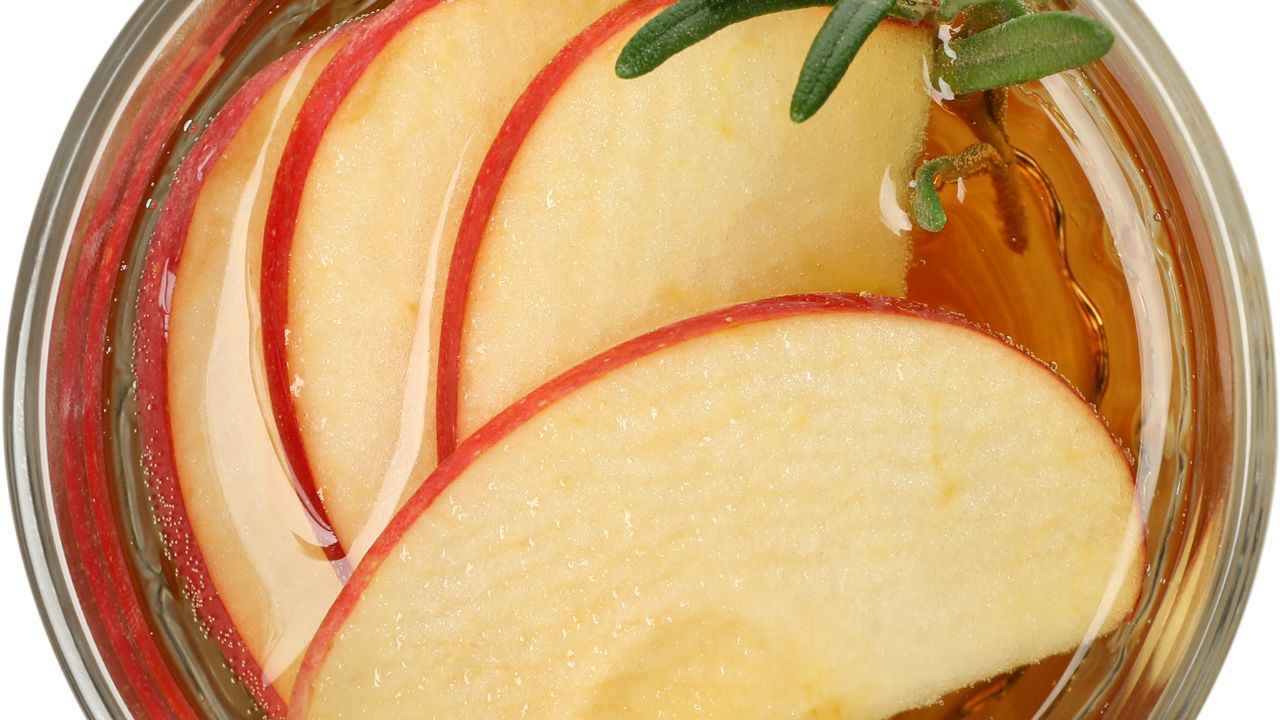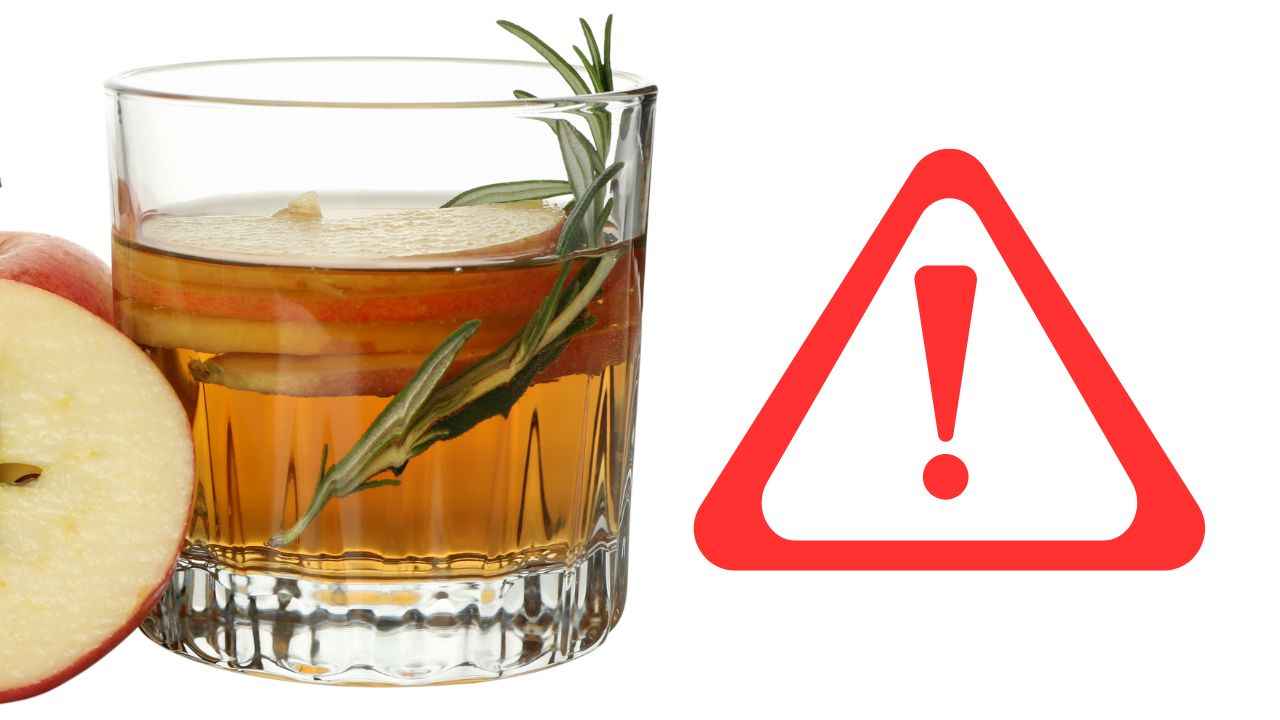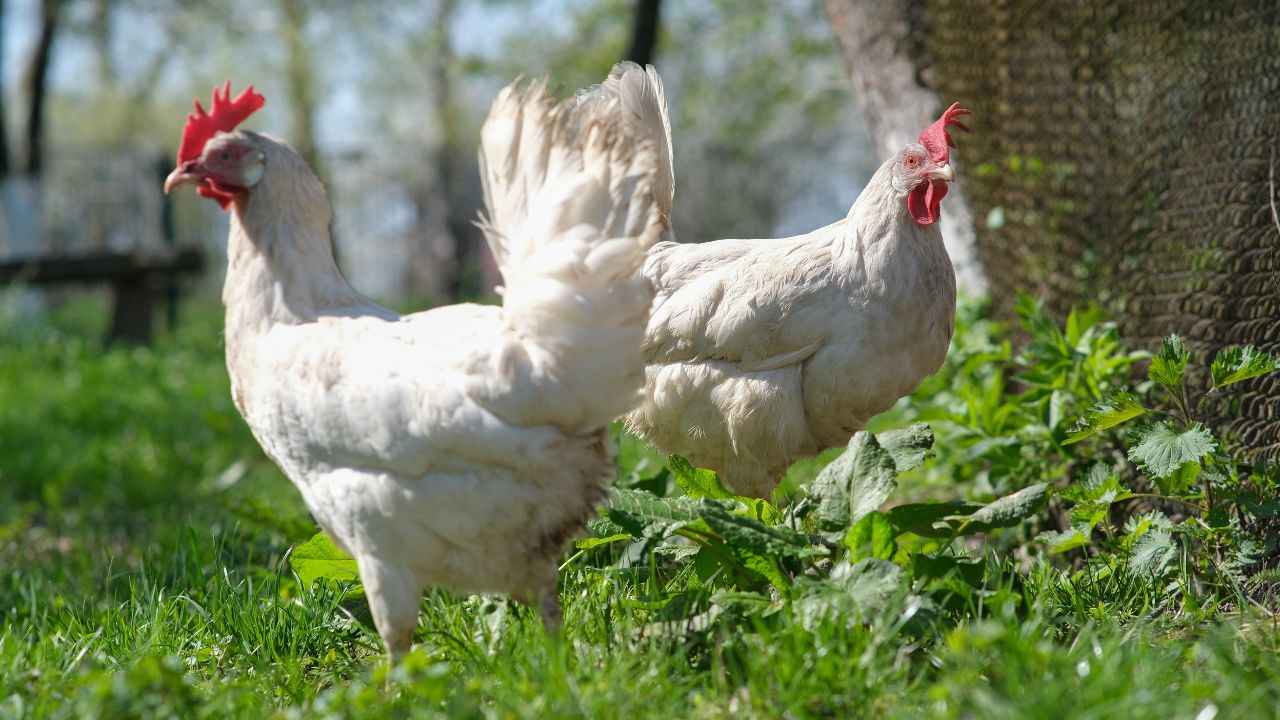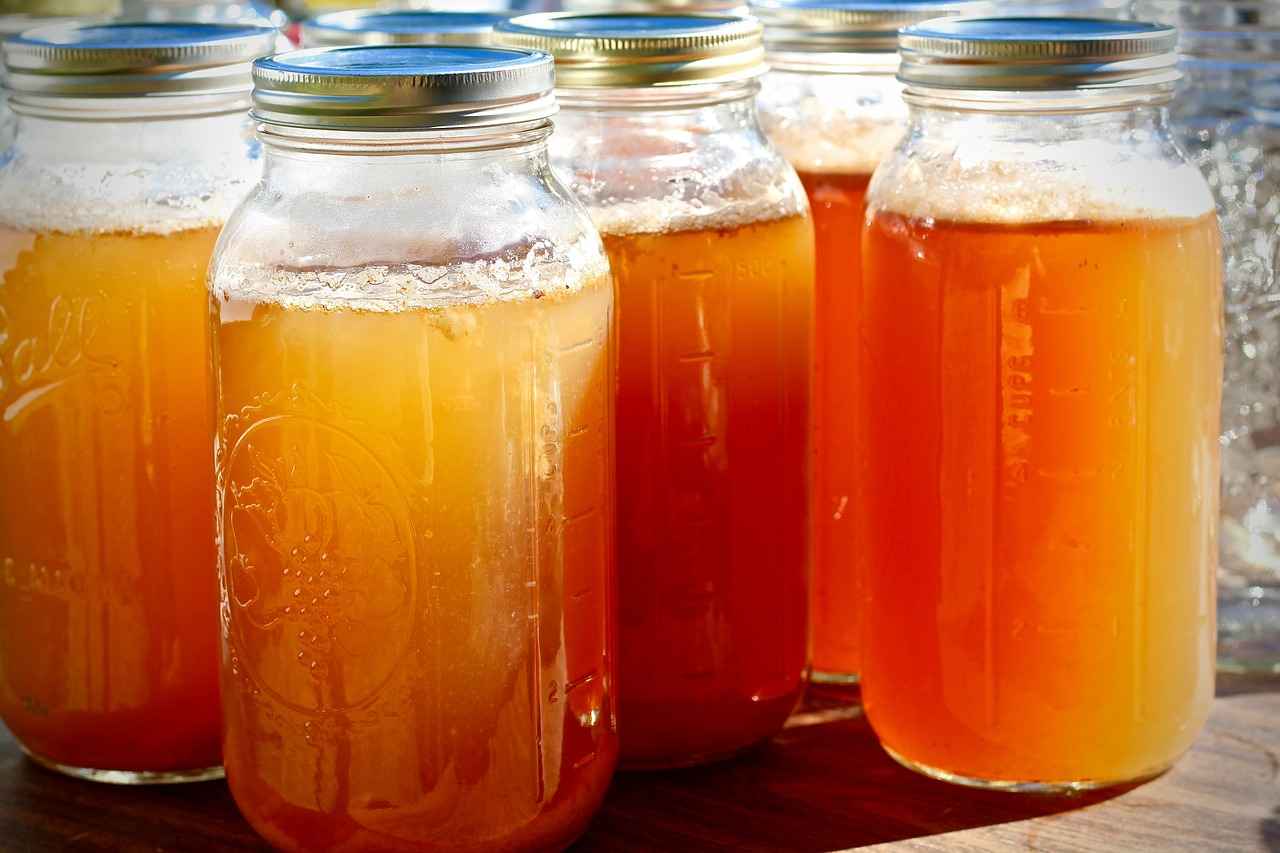Have you ever wondered if there’s a natural way to boost your chickens’ health and productivity? Apple cider vinegar (ACV) has been a go-to remedy for poultry farmers for years.
But how much is too much, and what’s the right dosage?
With conflicting advice online, it’s easy to feel overwhelmed.
This article dives into the benefits of apple cider vinegar for chickens, provides a clear apple cider vinegar dose for chickens chart, and explains how to avoid common pitfalls like too much apple cider vinegar for chickens.
What Is Apple Cider Vinegar Dose For Chickens
Apple cider vinegar is a fermented liquid made from apples, rich in acetic acid, probiotics, and essential nutrients.
For chickens, it’s touted as a natural supplement to improve digestion, boost immunity, and even enhance egg production. However, not all ACV is created equal.
Raw, unfiltered ACV with the “mother” (a cloudy substance at the bottom) is the best choice, as it contains beneficial enzymes and bacteria.
Benefits of Apple Cider Vinegar for Chickens
Backyard chicken keepers and commercial farmers are using this natural remedy to support their flocks. But what exactly makes ACV a go-to solution for chickens? Let’s explore.
- Supports Digestive Health
ACV helps maintain a healthy pH level in the chicken’s digestive tract, creating an environment that discourages harmful bacteria while promoting beneficial gut flora.
The acetic acid in ACV aids in breaking down proteins and minerals, making them easier for chickens to absorb.
By supporting healthy gut bacteria, ACV can help reduce the smell of chicken droppings, making coop maintenance more pleasant.
- Boosts Immune Function
ACV’s acetic acid has natural antibacterial and antiviral properties, which can help chickens fend off common infections.
Packed with vitamins, minerals, and antioxidants, ACV supports overall immune health, helping chickens stay resilient against diseases.
- Enhances Feather and Skin Health
Many chicken keepers report that ACV contributes to glossier, healthier feathers, likely due to improved nutrient absorption and overall health.
- Aids Respiratory Health
ACV can help detoxify the blood and reduce mucus, supporting clearer airways in chickens. By lowering fecal odor, ACV indirectly reduces ammonia levels in the coop.
- Supports Stress Management
ACV is believed to help chickens cope with stress, whether from extreme weather, molting, or introducing new flock members.
Adding ACV to water can encourage chickens to drink more, especially during hot weather, preventing dehydration.
How To Use Apple Cider Vinegar For Chickens
Apple cider vinegar’s benefits are often misunderstood. Some swear by its miraculous effects, while others question its scientific backing. So, what’s the truth?
Its use requires careful consideration to avoid potential pitfalls. This guide will walk you through everything you need to know about using apple cider vinegar for chickens.
Here are general dosage guidelines:
You can add 1-2 tablespoons of ACV per gallon of water.
For Sick Chickens: Use the same ratio but limit to 5-7 days to avoid over-acidification.
For Chicks: Reduce the concentration to 0.5% (4 teaspoons per gallon) to avoid overwhelming their delicate systems.
Apple cider vinegar dose for chickens chart:
| Flock Size | Water Volume | ACV Amount |
| Small (1-5 chickens) | 1 gallon | 1-2 tbsp |
| Medium (6-10 chickens) | 2 gallons | 2-4 tbsp |
| Large (11-20 chickens) | 3 gallons | 3-6 tbsp |
Using ACV effectively requires proper dilution and timing. Here’s a step-by-step guide:
- Choose the Right ACV
Opt for Raw, Unpasteurized ACV: Look for organic apple cider vinegar with the “mother,” a cloudy substance rich in probiotics and enzymes.
Avoid Pasteurized Varieties: These lack beneficial bacteria and may not offer the same health benefits.
- Dilute Properly
For Adult Chickens: Add 1 tablespoon of ACV per gallon of water. This 1-2% dilution is safe and effective.
For Chicks: Use a weaker solution of 0.5% (1 teaspoon per gallon) to avoid overwhelming their delicate systems.
- Administer Regularly but Moderately
Frequency: Use ACV for 1-2 weeks per month to prevent over-acidification of the gut.
Monitor Your Flock: Watch for signs of discomfort, such as reduced appetite or diarrhea, and adjust usage accordingly.
- Avoid Metal Containers
ACV’s acidic nature can corrode metal, leading to contamination of drinking water. Galvanized steel or iron waterers are particularly risky, as they can leach zinc into the water, causing zinc poisoning in chickens.
Safe Alternatives: Use plastic or rubber containers for ACV-infused water.
Signs of Zinc Poisoning: Weakness, pale combs, diarrhea, and weight loss. If observed, discontinue ACV immediately and consult a vet.
Precautions When Using Apple Cider Vinegar for Chickens
To ensure your chickens reap the benefits without harm, it’s crucial to follow proper precautions.
This topic outlines key precautions when using ACV, including dilution rates, container selection, and monitoring for side effects.
- Dilute Properly to Avoid Acidity Overload
- Avoid Metal Containers
- Monitor for Side Effects
- Choose High-Quality ACV
- Balance ACV with Other Nutritional Needs
- Use ACV as a Supplement, Not a Cure-All
Apple Cider Vinegar for Sick Chickens
Many poultry keepers are turning to natural remedies like apple cider vinegar (ACV) to care for sick chickens.
But does it really work? Let’s explore the science, benefits, and best practices for using ACV to help sick chickens recover and thrive.
For Adult Chickens:
Add 1-2 tablespoons of ACV per gallon of water. This dilution ensures safety and effectiveness.
For Chicks:
Use a weaker solution of 0.5% ACV (about 1 teaspoon per gallon) to avoid overwhelming their delicate systems.
Frequency:
Administer ACV for 5-7 days during illness, or once a week as a preventive measure.
Some important and effective tips:
Use Plastic Containers:
ACV can corrode metal, leading to contamination. Always use plastic waterers.
Choose Raw, Unfiltered ACV:
Look for products with the “mother”, a cloudy substance rich in probiotics and enzymes.
Monitor Your Chickens:
Observe your chickens for any adverse reactions, such as reduced water intake or digestive discomfort.
When to Avoid Apple Cider Vinegar
While ACV is generally safe, there are situations where it should be avoided:
During Medication:
It interferes with the absorption of certain mediation. Consult your vet before use.
Severe Digestive Issues:
Excessive acidity can worsen conditions like diarrhea.
Metal Contamination:
Never use ACV in metal containers, as it can leach harmful substances into the water.
Scientific Evidence and Statistics of ACV for Chickens
Recent studies highlight ACV’s potential:
A 2021 study found that broiler chickens given ACV had higher body weight gain and improved immune response.
Research in 2018 demonstrated that ACV significantly reduced Coccidia oocysts in chickens, preventing coccidiosis.
ACV has been shown to enhance nutrient absorption and intestinal health, crucial for sick chickens.
Common Myths About Apple Cider Vinegar for Chickens
Apple cider vinegar is not a miracle cure, but it can be a helpful supplement when used correctly.
Myth 1: ACV is a Wonder Dewormer
One of the most pervasive myths is that ACV can effectively eliminate worms in chickens. While ACV may help maintain a healthy gut environment, there is no scientific evidence to support its efficacy as a dewormer.
Myth 2: ACV Can Cure Respiratory Infections
Many chicken keepers believe that ACV can clear respiratory issues in chickens. While ACV may support overall immune health, it is not a cure for respiratory infections.
Myth 3: ACV Boosts Egg Production
Another common claim is that ACV increases egg production. While ACV can improve nutrient absorption and gut health, there is no conclusive evidence linking it directly to higher egg yields.
Myth 4: ACV Eliminates Toxins in Water
Some believe that adding ACV to water can detoxify it by removing harmful contaminants. While ACV’s acidic properties can inhibit bacterial growth, it does not neutralize toxins or purify water.
Myth 5: ACV is Safe in Any Quantity
Overuse of ACV is a common mistake. While ACV is generally safe when diluted (1 tablespoon per gallon of water), excessive amounts can lead to digestive issues, acidosis, and calcium absorption problems. Moderation is key to avoiding adverse effects.
Myth 6: ACV Repels External Parasites
Spraying ACV on chickens is often touted as a natural way to repel mites and lice. However, there is no scientific evidence to support this claim. For effective parasite control, use proven methods like diatomaceous earth or veterinary-approved treatments.
Myth 7: ACV is a Substitute for Veterinary Care
Perhaps the most dangerous myth is that ACV can replace professional veterinary care. While ACV can support general health, it is not a substitute for diagnosing or treating serious illnesses. Always consult a veterinarian for accurate diagnosis and treatment.
Final Thoughts
Apple cider vinegar can be a valuable addition to your chickens’ diet when used correctly. By following the apple cider vinegar dose for chickens per gallon guidelines and monitoring your flock’s health, you can harness its benefits without risking harm.
Remember, moderation is key, and always prioritize clean water, balanced feed, and a healthy environment for your birds.
Ready to give it a try? Start with a small dose and observe your chickens’ response. With the right approach, ACV can help your flock thrive naturally!
FAQs
How Much Apple Cider Vinegar Per Liter for Chickens?
The recommended dosage is 1-2 tablespoons of apple cider vinegar (ACV) per liter of water. This dilution ensures safety and effectiveness, promoting digestive health and immune support without causing acidity issues. Always use raw, unfiltered ACV with the “mother” for maximum benefits.
Is ACV Safe for All Chicken Breeds?
Yes, ACV is safe for all chicken breeds when used in moderation. However, avoid metal waterers as ACV can corrode them, and always monitor for adverse reactions like digestive discomfort. Chicks under two weeks old should receive a weaker dilution (5 ml per liter).
Can ACV Replace Commercial Medications?
No, ACV cannot replace commercial medications but can complement them. It supports gut health, boosts immunity, and may reduce harmful bacteria, but it’s not a cure for serious illnesses or infections. Always consult a vet for proper treatment plans.
How Do You Introduce ACV to a Chicken Diet?
Start with a small dose (1 tablespoon per gallon) and gradually increase to the recommended amount. Mix it thoroughly in their drinking water or feed to ensure even distribution. Provide fresh water alongside to prevent dehydration if chickens dislike the taste.
How Often Do You Give Chickens Apple Cider Vinegar?
Administer ACV 1-2 times weekly for adult chickens, or continuously for chicks to boost immunity against coccidiosis. During high-stress periods like molting or introducing new flock members, use it for 5-7 days to support overall health.
What Does Apple Cider Vinegar Do for Chickens?
ACV improves digestion, boosts immunity, and enhances nutrient absorption, leading to healthier feathers and stronger eggshells. It also reduces fecal odor and may help control parasites, though scientific evidence is limited.
I’m a tech and AI entrepreneur who loves building smart tools and products. I start new businesses that use technology like AI to solve real-world problems. I enjoy turning problems into solutions with the help of AI and SEO that help people and make life easier.

